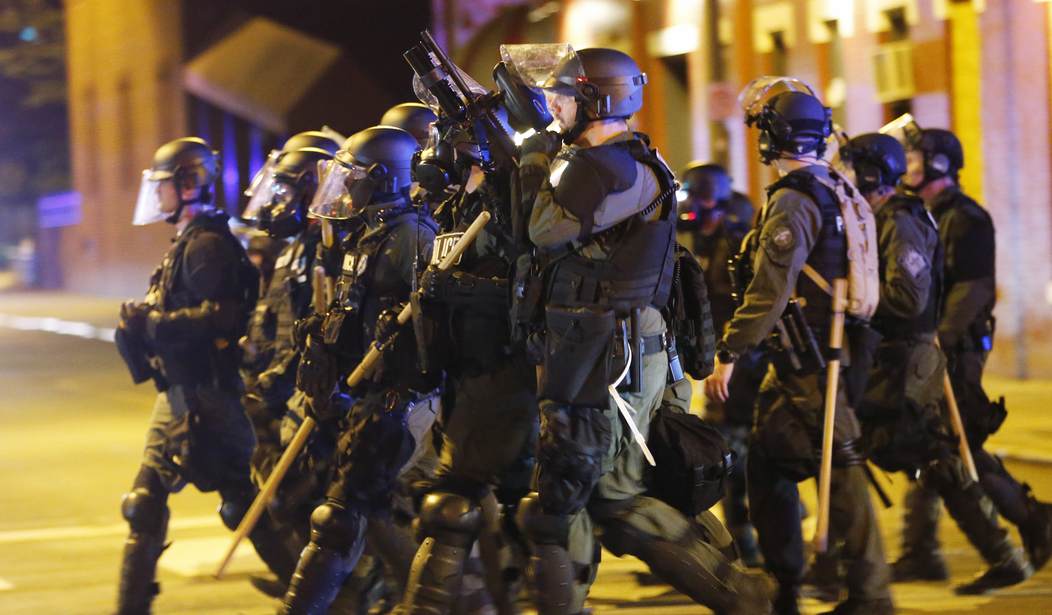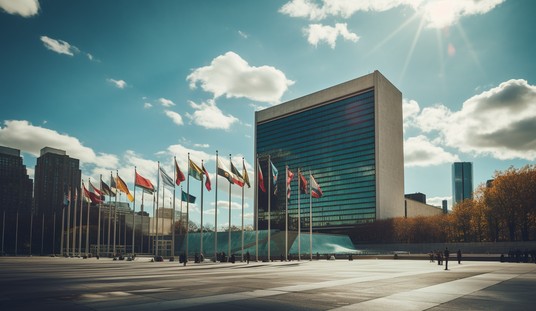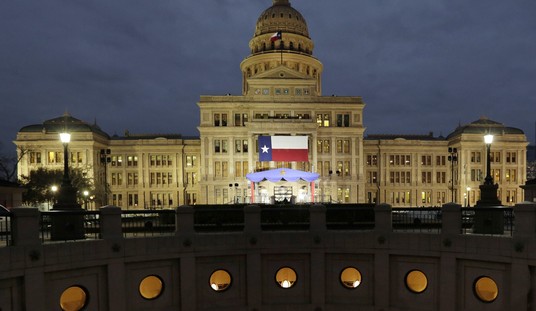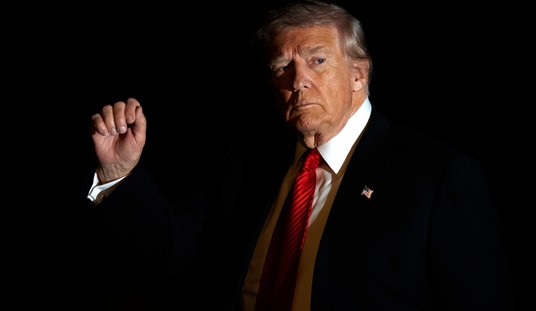We are still a nation of laws, aren't we? Aren't we?
It seems like in the news business lately, our American cities are plagued with "another day, another anarchic street takeover." There are people literally causing chaos on the streets of our cities, shooting fireworks at police officers, performing dangerous stunts with cars, motorcycles, and off-road vehicles, and at times destroying private property and looting. These lawless gatherings can only be called riots.
I wrote about these on Wednesday, in the most recent installment in my "The Downfall of America's Cities" series:
Read More: The Downfall of America's Cities: Why Are Our Streets Out of Control?
On Thursday, when I got to my desk, I saw that it had happened again. This time, in Secaucus, New Jersey.
Video showed a "riotous" scene erupted in New Jersey over Labor Day weekend as dozens of cars took over a local road and individuals shot fireworks at police vehicles in the middle of the night, officials said.
At around 2 a.m. Sunday, officers received a call reporting over 100 people driving recklessly and making donuts at a local intersection, according to the Secaucus Police Department.
When police arrived, a group of over 50 people surrounded authorities’ vehicles as some individuals climbed on top, ultimately causing some damage to the cruisers.
WATCH: Police officers come “under attack” as a “riotous” street mob fires fireworks at them in New Jersey. pic.twitter.com/5S51VLQDuW
— Fox News (@FoxNews) September 4, 2025
This is happening all too often. In such instances, when law enforcement responds, there's a somewhat archaic saying that the crowd must be "...read the Riot Act," implying that they must be (sometimes harshly) called to account for their actions. In modern parlance, the riot is the "Fool Around" portion, and the Riot Act describes the "Find Out" consequences. But the Riot Act was a real thing, passed by the British Parliament in 1714, taking effect in 1715. The Riot Act was intended to enable the British government and police to restore order in the event of riots or civil unrest.
One of the requirements of the Riot Act was a specific message that had to be read to the crowd:
“Our Sovereign Lord the King chargeth and commandeth all persons, being assembled, immediately to disperse themselves, and peaceably to depart to their habitations, or to their lawful business, upon the pains contained in the act made in the first year of King George, for preventing tumults and riotous assemblies. God Save the King!”
That's rather more florid language than we might use today, and maybe more polite than our current crop of rioters deserves, especially since it makes no reference to "scumbags." In any case, in the case of the British Riot Act, the rioters were then to be given one hour to disperse, or face serious consequences, of the "disperse or you will be fired upon" type. Problem is, it didn't always work, and sometimes, the authorities were required to show the mob what the "or else" was.
Once the officer—who could be a mayor, bailiff, sheriff, or justice of the peace—read this wordy sentence, ideally in a booming and authoritative voice, the group received a grace period of one hour. After 60 minutes elapsed, any members of the crowd who remained had officially committed a felony. The punishment? Death.
Ideally, rabble rousers would listen to the reading of the Riot Act, reflect upon their wrongdoing, and each saunter away in silent contemplation, thus avoiding further confrontation and eventual death by execution. In practice, however, assembled crowds were less inclined toward such peaceable resolutions.
Given the current state of affairs in our cities and our political discourse, it seems like the "in practice" would apply more often than the "ideally." Invoking the king probably won't carry much weight here, either, nor should it.
It's hard to see how such an act might be worded or carried out now, in the United States. We have the First Amendment, which protects political speech and peaceful (in the literal, not the Democrat, sense) protests. That's something the British people should be looking at with bitter envy right now. But the First Amendment doesn't protect rioters, looters, or organized street takeovers. Those require force, and the current levels of allowable force by law enforcement aren't getting the job done.
The government exists to protect the liberty and property of the citizens. In too many of our cities, that's not happening.
The British Parliament repealed the Riot Act in 1967. We have no strict equivalent here, where law enforcement is mostly a local issue, handled at the municipal, county, or state level. There are laws about unlawful assembly and disturbing the peace, but the penalties in many such cases are limited to variations on the "failure to disperse" theme - carrying nominal sentences, too often bargained down to next to nothing. (This doesn't apply to people arrested for arson or looting.) And, let's be honest, none of the mostly Democratic municipal leaders (I use the word "leaders" in the broadest possible sense) are about to invoke a "disperse or you will be fired upon" policy. But the state of our cities, the recurrence of things like these street takeovers, requires a vigorous response. Codifying a process for some kind of escalation in police responses might become essential.















